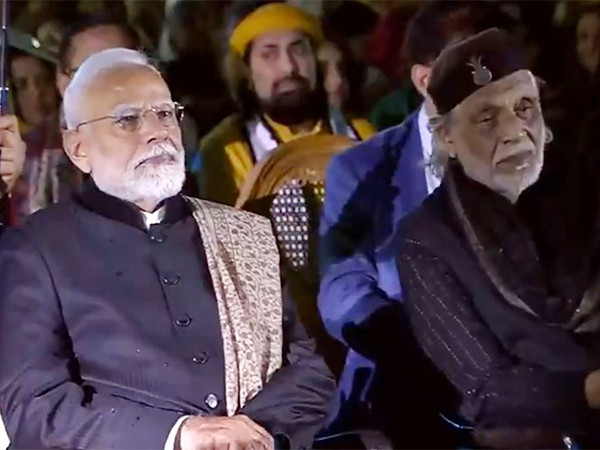
The reign of Maulana Rumi runs unabated centuries after he migrated from this world. His body lies buried in Turkey, but his soul, in his verses, continues to illuminate millions across continents. On a drizzling Friday evening in New Delhi, Indian Prime Minister Narendra Modi enlivened Rumi and Sufism at an annual programme devoted to the memory of another mystic-poet Hazrat Amir Khusro.
The Jahan-e-Khusro festival is organised by the Rumi Foundation, established and run by sufi filmmaker-artist-fashion designer and erstwhile royal, Muzaffar Ali. Ali has made a documentary on the life of Rumi and plans to turn it into a full-scale feature film on international standard.
As Indian Prime Minister rose to the rostrum for his address, it began raining. He however broke into his eloquence saying it was a sign from Almighty to make the evening more soulful. The audience, comprising the elite of Delhi and foreign dignitaries, was spellbound as PM Modi quoted Khusro, Rumi and Ghalib fluently and emphasised that the power of their words is such that he has been quoting them in his speeches abroad.
He quoted Rumi’s advice of practical advice to subdue conflict at its very beginning: “Raise your arguments, not your voice. A flower blossoms in rain, not in sound of thunder.”
Is Prime Minister Modi part of a secluded lot that is besotted with sufi mystics, especially Rumi? No, as PM Modi said, India has been a land that is naturally susceptible to embrace ideas of love and oneness that forms the bedrock of sufi doctrine.
Rumi and India
Rumi is credited to have said that he neither belonged to West neither East. His realm was the whole universe. Prime Minister Modi said that this thought aligns completely with India’s vedantic covenant and his government’s signature foreign policy theme – vasudeva kutumbkum (the entire world is a home).
Like his poetry and philosophy, Jalaluddin Rumi has a mystic connection with India. Shamsuddin of Tabrez, his murshid (master), to whom he had dedicated his collection of ghazaliat as Diwan e Shams e Tabrezi, is believed to have Indian ancestry.
According to Orientalist H.A. Rose, he was probably of Indian origin who identified himself with Shamsuddin Tabriz of Multan, a great contemporary saint and who got the sobriquet of Tab-riz or ‘heat-pouring’ because he brought the sun closer to that spot. Dr Rasih Guven too supports this view and states that his father Khawand Alauddin was an Indian and a new convert to Islam and his name was Govind, a Sanskrit word.
Although Rumi’s works are literary works of a Muslim jurist and mystic, written in the Persian language, they crossed the barriers of language, religion and culture to reach different peoples belonging to different civilisations and cultures.
The first printing of Masnavi (the Persian version) was in Cairo in 1835. In India, however, Rumi reached much earlier. Hazrat Nizamuddin Auliya, the great guide of the Chishti sufi order, wrote a commentary on Rumi’s Masnavi in the 14th century.
Rumi’s greatest influence on Indian culture in the modern era has been poet and philosopher Muhammad Iqbal, who considered Rumi his spiritual guide and “the prince of the caravan of love.” Iqbal interestingly was introduced to Rumi in England where went for his study and found that Rumi has been inspiration of many European Renaissance philosophers like Friedrich Hegel, Karl Marx, Goethe, Schopenhauer, etc.
Dr Shujaat Ali Quadri is serving as Chairman of Muslim Students' Organisation of India since 2021. He had served as National President of Muslim Students' Organization of India from 2017 to 2021. He is also the spokesperson of All India Tanzeem Ulama-e-Islam